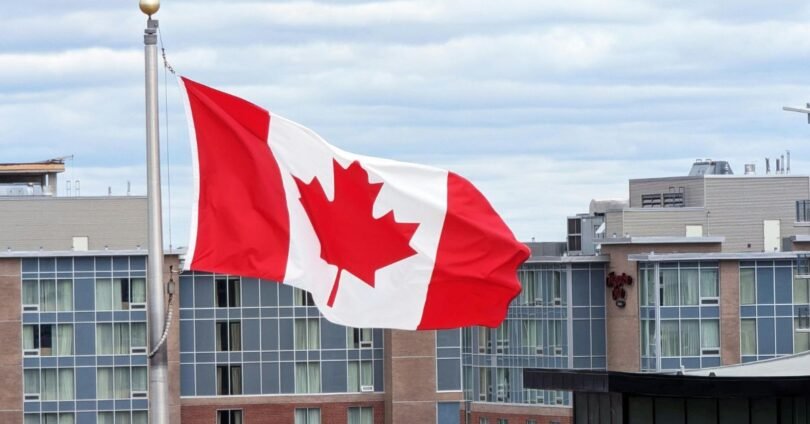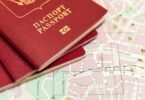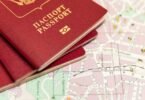How to Get Canadian Visa Sponsorship Through Marriage
Canada is renowned for its welcoming immigration policies, diverse culture, and high quality of life, making it a top destination for individuals seeking new opportunities. One of the most accessible pathways for foreigners to immigrate to Canada is through spousal sponsorship, a process that allows Canadian citizens or permanent residents to sponsor their spouse or common-law partner for permanent residency.
This comprehensive guide explores every aspect of obtaining a Canadian visa through marriage sponsorship, including eligibility requirements, application processes, challenges, and practical tips for success. Whether you’re newly married or in a long-term relationship, this article will provide a detailed roadmap to navigate the Canadian immigration system and build a life together in Canada.
Understanding Spousal Sponsorship in Canada
Spousal sponsorship is a family reunification program administered by Immigration, Refugees and Citizenship Canada (IRCC). It allows Canadian citizens or permanent residents to sponsor their spouse, common-law partner, or conjugal partner to become a permanent resident of Canada. The program is designed to keep families together, reflecting Canada’s commitment to family values and humanitarian principles.
The process involves two key parties: the sponsor (a Canadian citizen or permanent resident) and the sponsored person (the foreign spouse or partner). Upon successful sponsorship, the sponsored person gains permanent resident status, allowing them to live, work, and study in Canada indefinitely, with the possibility of applying for Canadian citizenship later.
Why Choose Spousal Sponsorship?
- Path to Permanent Residency: Unlike temporary visas, spousal sponsorship leads to permanent residency, offering stability and access to Canadian benefits like healthcare and education.
- No Job Offer Required: Unlike work-based immigration programs, spousal sponsorship does not require the sponsored person to have a job offer or specific skills.
- Inclusive Relationships: Canada recognizes legally married spouses, common-law partners (living together for at least one year), and conjugal partners (in a marriage-like relationship but unable to live together due to exceptional circumstances).
- High Success Rate: With proper documentation and a genuine relationship, spousal sponsorship applications have a high approval rate, with over 80% of applications approved annually, according to IRCC data.
Types of Relationships Eligible for Sponsorship
To qualify for spousal sponsorship, your relationship must fall into one of the following categories recognized by IRCC:
- Spouse:
- A legally married partner through a marriage recognized in Canada and the country where the marriage took place.
- Example: A marriage certificate issued in your home country or Canada is required.
- Common-Law Partner:
- A partner you have lived with in a conjugal relationship for at least 12 consecutive months.
- Cohabitation must be continuous, though brief separations for work or travel are allowed if the relationship remains committed.
- Conjugal Partner:
- A partner in a marriage-like relationship for at least one year, but unable to live together or marry due to significant barriers (e.g., legal restrictions, immigration issues, or cultural prohibitions).
- This category is less common and requires strong evidence of a committed relationship.
Key Considerations for Relationships
- Same-Sex Relationships: Canada fully recognizes same-sex marriages and partnerships for sponsorship purposes, provided they meet the legal requirements.
- Genuine Relationship: IRCC closely examines relationships to ensure they are genuine and not entered into primarily for immigration purposes. Evidence of a bona fide relationship is critical.
- Previous Marriages: If either partner was previously married, proof of divorce or annulment must be provided.
Eligibility Requirements for Spousal Sponsorship
Sponsor Eligibility
To sponsor a spouse or partner, the Canadian citizen or permanent resident must meet the following criteria:
- Age: Be at least 19 years old.
- Status: Be a Canadian citizen, permanent resident, or a person registered under the Indian Act.
- Residency: For Canadian citizens, you can sponsor regardless of where you live, but you must intend to live in Canada once the sponsored person becomes a permanent resident. Permanent residents must live in Canada during the sponsorship process.
- Financial Responsibility: Agree to financially support the sponsored person for three years, ensuring they do not rely on social assistance. No minimum income is required for spousal sponsorship, unlike dependent child sponsorship.
- No Sponsorship Restrictions: You must not:
- Be in prison, bankrupt, or under a removal order.
- Have sponsored another spouse within the last three years.
- Be in default of previous sponsorship undertakings or court-ordered payments (e.g., alimony or child support).
- Have been convicted of certain criminal offenses, such as violent crimes or offenses against a relative.
Sponsored Person Eligibility
The spouse or partner being sponsored must:
- Have a Genuine Relationship: Prove a committed, ongoing relationship with the sponsor.
- Be Admissible to Canada: Pass medical, criminal, and background checks. Inadmissibility (e.g., serious criminal convictions or health risks) can lead to application refusal.
- Meet Relationship Criteria: Provide evidence of a legal marriage, common-law partnership, or conjugal relationship.
Types of Spousal Sponsorship Applications
There are two main streams for spousal sponsorship, depending on where the sponsored person resides:
- Outland Sponsorship:
- For spouses or partners living outside Canada.
- The application is processed through a Canadian visa office in the sponsored person’s home country or country of residence.
- The sponsored person can visit Canada during processing if eligible for a visitor visa, but they cannot work or study without separate permits.
- Processing time: Typically 12-24 months, depending on the visa office.
- Inland Sponsorship:
- For spouses or partners living in Canada with the sponsor, usually on a temporary visa (e.g., visitor or work permit).
- The sponsored person can apply for an Open Work Permit while the application is processed, allowing them to work in Canada.
- Processing time: Approximately 12-18 months.
- Note: The sponsored person must maintain legal status in Canada during processing.
Which Stream to Choose?
- Outland: Ideal if the sponsored person is outside Canada or prefers to remain in their home country during processing. It may be faster for certain countries with efficient visa offices.
- Inland: Best if the couple is already living together in Canada and the sponsored person wants to work during processing. However, leaving Canada during processing can complicate the application.
Step-by-Step Process for Spousal Sponsorship
Step 1: Confirm Eligibility
- Verify that both the sponsor and sponsored person meet IRCC’s eligibility criteria.
- Review relationship requirements (spouse, common-law, or conjugal) and gather preliminary evidence, such as marriage certificates or proof of cohabitation.
Step 2: Gather Required Documents
A successful application hinges on comprehensive documentation to prove eligibility and relationship genuineness. Key documents include:
- For the Sponsor:
- Proof of Canadian citizenship or permanent residency (e.g., passport, PR card).
- Proof of residency in Canada (for permanent residents).
- Police certificates (if required).
- Financial documents (e.g., tax returns, if applicable, though not mandatory for spousal sponsorship).
- Sponsorship agreement signed by both parties, confirming the sponsor’s commitment to support the sponsored person.
- For the Sponsored Person:
- Valid passport and identity documents.
- Marriage certificate (for spouses) or proof of cohabitation (for common-law partners, e.g., joint leases, bills, or photos).
- Evidence of relationship genuineness, such as:
- Photos together over time.
- Joint bank accounts, leases, or utility bills.
- Letters, emails, or chat logs showing ongoing communication.
- Travel itineraries or receipts from shared trips.
- Statements from friends, family, or community members attesting to the relationship.
- Police certificates from every country where the sponsored person lived for six months or more after age 18.
- Medical examination results from an IRCC-approved panel physician.
- Birth certificates, divorce certificates (if applicable), and other civil documents.
- For Conjugal Partners:
- Evidence of barriers preventing cohabitation or marriage (e.g., immigration restrictions or legal prohibitions).
- Strong proof of a committed relationship, such as long-term communication records or financial support.
Tips for Documentation:
- Translate non-English documents into English or French by a certified translator.
- Organize documents clearly, using a checklist provided in the IRCC application package.
- Provide more evidence than the minimum required to strengthen your case.
Step 3: Complete the Application Package
Download the appropriate application package from the IRCC website:
- Outland Sponsorship: IMM 1344 (Application to Sponsor, Sponsorship Agreement, and Undertaking) and IMM 5532 (Relationship Information and Sponsorship Evaluation).
- Inland Sponsorship: Includes additional forms for the Open Work Permit (IMM 5710, if applicable).
Key forms include:
- IMM 0008 (Generic Application Form for Canada): For the sponsored person.
- IMM 1344: Sponsorship agreement signed by both parties.
- IMM 5532: Details about the relationship and cohabitation.
- IMM 5669 (Schedule A – Background/Declaration): For criminal and background history.
- IMM 5406 (Additional Family Information): For family details.
Tips:
- Use the IRCC checklist to ensure all forms and documents are included.
- Double-check for completeness and accuracy to avoid delays or refusal.
- Consider using a document management tool to organize files digitally before submission.
Step 4: Pay Application Fees
Fees for spousal sponsorship include:
- Sponsorship fee: CAD $75.
- Principal applicant processing fee: CAD $490.
- Right of Permanent Residence Fee (RPRF): CAD $515 (payable later, upon approval).
- Open Work Permit fee (inland only): CAD $255 (if applying).
- Biometrics fee: CAD $85 per person (for ages 14-79).
- Total (without work permit): Approximately CAD $1,150.
Pay fees online through the IRCC payment portal. Keep receipts as proof of payment.
Step 5: Submit the Application
- Outland: Mail the application to the Case Processing Centre in Mississauga, Ontario, or submit it to the appropriate visa office, depending on the sponsored person’s country.
- Inland: Submit the application to the Case Processing Centre in Mississauga.
- Use a courier service with tracking for mailed applications to ensure delivery.
- After submission, you’ll receive an Acknowledgment of Receipt (AOR) from IRCC, typically within 2-4 weeks, confirming the application is under review.
Step 6: Provide Biometrics and Medical Exams
- Biometrics: The sponsored person will receive a Biometric Instruction Letter within 2-4 weeks of AOR. Schedule an appointment at a Visa Application Centre (VAC) or designated biometrics collection point. Biometrics include fingerprints and a photo.
- Medical Exam: The sponsored person must complete a medical exam with an IRCC-approved panel physician. Results are sent directly to IRCC and are valid for 12 months.
Step 7: Wait for Processing
- Processing times vary:
- Outland: 12-24 months, depending on the visa office and country.
- Inland: 12-18 months, with the option to apply for an Open Work Permit.
- Check application status online using the IRCC portal with your application number.
- IRCC may request additional documents or an interview to verify the relationship’s genuineness.
Step 8: Receive Approval and Land in Canada
- Upon approval, the sponsored person receives a Confirmation of Permanent Residence (COPR) and, if required, a Permanent Resident Visa (for outland applicants).
- Outland Applicants: Must enter Canada before the visa expires (usually one year from the medical exam date). Present the COPR at the port of entry to become a permanent resident.
- Inland Applicants: Complete landing formalities in Canada, typically through an appointment with IRCC.
- The permanent resident card is mailed within 1-2 months after landing.
Proving a Genuine Relationship
IRCC places significant emphasis on ensuring the relationship is genuine and not entered into for immigration purposes. Common red flags include:
- Short relationships with minimal evidence.
- Significant age or cultural differences (though these alone don’t disqualify).
- Inconsistent or limited documentation.
Tips to Prove Genuineness
- Provide Extensive Evidence: Include photos, communication records (e.g., WhatsApp or email logs), joint financial documents, travel receipts, and affidavits from friends or family.
- Write a Relationship Statement: Both partners should submit a detailed letter explaining how the relationship began, key milestones, and future plans in Canada.
- Be Consistent: Ensure all forms, documents, and interviews provide consistent details about the relationship timeline and circumstances.
- Prepare for Interviews: If IRCC requests an interview, practice answering questions about your relationship history, daily routines, and shared experiences.
Challenges and How to Overcome Them
Common Challenges
- Processing Delays: High application volumes or complex cases can extend processing times beyond the average.
- Solution: Submit a complete application with all required documents to minimize delays. Check status regularly and respond promptly to IRCC requests.
- Inadmissibility Issues: Criminal records, health issues, or misrepresentation can lead to refusal.
- Solution: Obtain police certificates early and address any inadmissibility issues with legal advice. For medical inadmissibility, consult an immigration lawyer for potential waivers.
- Proving Relationship Genuineness: Insufficient evidence or red flags can result in refusal.
- Solution: Provide a wide range of documents covering the entire relationship timeline. Consider hiring an immigration consultant for complex cases.
- Financial Barriers: Application fees and relocation costs can be significant.
- Solution: Save approximately CAD $3,000-$5,000 for fees, medical exams, and initial relocation expenses. Some sponsors may cover costs for the sponsored person.
When to Seek Professional Help
- Immigration Lawyer or Consultant: Consider hiring a Regulated Canadian Immigration Consultant (RCIC) or lawyer if:
- Your case is complex (e.g., conjugal partnership or inadmissibility issues).
- You’ve been refused previously and need to appeal or reapply.
- You need help gathering evidence or navigating IRCC processes.
- Cost: Legal fees range from CAD $2,000-$5,000, depending on the complexity of the case.
- Finding a Professional: Use the College of Immigration and Citizenship Consultants (CICC) website to verify licensed consultants.
Benefits of Permanent Residency Through Sponsorship
Once approved, the sponsored person enjoys numerous benefits as a Canadian permanent resident:
- Live and Work Anywhere in Canada: Access to jobs in any province without needing a work permit.
- Healthcare and Education: Eligibility for provincial healthcare and subsidized education at Canadian institutions.
- Path to Citizenship: After living in Canada for three years (1,095 days) within five years, permanent residents can apply for Canadian citizenship.
- Social Benefits: Access to programs like employment insurance and child benefits, subject to eligibility.
- Family Reunification: Permanent residents can later sponsor their own family members (e.g., parents or children).
Tips for a Successful Application
- Start Early: Begin gathering documents and preparing your application as soon as possible to account for processing times and potential delays.
- Be Thorough: Include more evidence than required to strengthen your case. Quality and quantity matter when proving relationship genuineness.
- Stay Organized: Use IRCC’s checklist and create a digital or physical filing system to track documents and deadlines.
- Communicate Clearly: Ensure all forms are filled out accurately and legibly. Double-check for errors before submission.
- Monitor Application Status: Use the IRCC online portal to track progress and respond promptly to additional requests.
- Plan for Relocation: Research housing, job opportunities, and community resources in your intended Canadian city. Cities like Toronto, Vancouver, and Montreal are popular for newcomers.
- Join Support Communities: Connect with other sponsored spouses through online forums like CanadaVisa.com or Reddit’s r/ImmigrationCanada for advice and support.
Costs Associated with Spousal Sponsorship
Beyond application fees, consider additional costs:
- Medical Exam: CAD $200-$500 per person, depending on the country and physician.
- Police Certificates: CAD $10-$100 per certificate, varying by country.
- Document Translation: CAD $50-$200 per document, if not in English or French.
- Travel and Relocation: CAD $1,000-$3,000 for flights, initial housing, and settling-in costs.
- Legal Assistance (Optional): CAD $2,000-$5,000 for an immigration consultant or lawyer.
Total estimated cost: CAD $3,000-$10,000, depending on circumstances and whether professional help is hired.
Processing Times and Regional Variations
Processing times depend on the application stream and the visa office:
- Outland: 12-24 months. Faster processing may occur in countries with efficient visa offices (e.g., the UK or Australia). Slower offices (e.g., India or Nigeria) may take longer.
- Inland: 12-18 months, with the advantage of living in Canada during processing.
To check current processing times, visit the IRCC website and use the “Check Processing Times” tool, selecting your country and application type.
After Approval: Settling in Canada
Once the sponsored person becomes a permanent resident, take these steps to settle successfully:
- Apply for a PR Card: This card serves as proof of permanent resident status and is required for re-entry to Canada.
- Access Healthcare: Register for provincial health insurance (e.g., OHIP in Ontario or MSP in British Columbia), which typically becomes available after a 3-month waiting period.
- Find Employment: Use job boards like Indeed.ca or Job Bank to explore opportunities. Many employers value international experience.
- Enroll in Integration Programs: Organizations like YMCA and local settlement agencies offer free services, including language classes, job search support, and community orientation.
- Plan for Citizenship: Track your physical presence in Canada to meet the 3-year residency requirement for citizenship eligibility.
Common Questions About Spousal Sponsorship
Can I Sponsor My Spouse If I’m Unemployed?
Yes, there is no minimum income requirement for spousal sponsorship, as long as you can demonstrate the ability to support your spouse without relying on social assistance.
What Happens If My Application Is Refused?
If refused, IRCC will provide reasons (e.g., insufficient evidence or inadmissibility). You can:
- Reapply with corrected or additional documents.
- Appeal to the Immigration and Refugee Board (IRB) within 30 days (for inland) or 60 days (for outland).
- Seek legal advice to strengthen your case.
Can My Spouse Work While the Application Is Processing?
For inland applicants, applying for an Open Work Permit allows the sponsored person to work in Canada during processing. Outland applicants must apply for a separate work permit if they wish to work while visiting Canada.
Can We Include Dependent Children?
Yes, dependent children (under 22, unmarried, and not in a common-law relationship) can be included in the application. Additional fees (CAD $150 per child) and documents (e.g., birth certificates) are required.
Future Outlook for Spousal Sponsorship
Canada’s commitment to family reunification ensures that spousal sponsorship will remain a priority immigration program. IRCC aims to process 80,000 family sponsorship applications annually, with spousal sponsorship making up a significant portion. Improvements in digital processing and biometrics collection have reduced delays in recent years, and Canada’s immigration targets (470,000 permanent residents in 2025) suggest continued opportunities for sponsored spouses.
Conclusion
Obtaining a Canadian visa through marriage sponsorship is a viable and rewarding pathway for couples seeking to build a life together in Canada. By meeting eligibility requirements, gathering comprehensive documentation, and navigating the application process carefully, you can achieve permanent residency and access Canada’s many opportunities.
Start early, stay organized, and consider professional assistance for complex cases to maximize your chances of success. With patience and preparation, you and your spouse can embark on a new chapter in one of the world’s most welcoming countries.
For the latest forms, fees, and processing times, visit the IRCC website (www.canada.ca/en/immigration-refugees-citizenship). Begin your journey today and take the first step toward a shared future in Canada.







